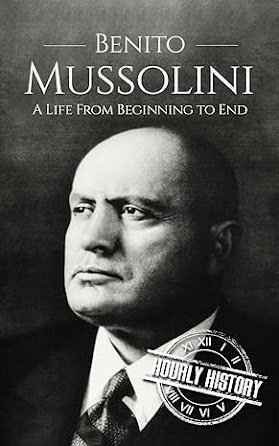Lovelock (Mayflower Trilogy #1) (audiobook) by Orson Scott Card and Kathryn H. Kidd
Performed by Emily Rankin
Duration: 11 hours, 44 minutes
Blackstone Audio
Prolific author Orson Scott Card has published dozens of
books, a handful of plays, writes multiple newspaper columns, publishes an
online magazine and even had a hand in the creation of several video games over
the years. Oh, and just in case you haven’t heard, the movie version of his
most famous novel, Ender’s Game is going to be released in
November. So, in a way, Lovelock is a bit strange for such an
ultra-prolific author. It was intended to be the first novel in a trilogy when
it was written in 1994 but the rest of the books have never been written.
Officially, according to Card’s website, the second book in the trilogy is
called Rasputin, but it has been listed as “in progress” for
almost 20 years. Lovelock was co-written with Kathryn H. Kidd, an author who
mainly specializes in writing religious-based articles and books.
Lovelock is the name of a Capuchin monkey and this story is
told in the first person from his point of view. He is named for James
Lovelock, the originator of the Gaia Hypothesis. Lovelock is a witness, a
genetically engineered and highly trained Capuchin monkey assigned to chronicle
the existence of his owner for posterity. His owner is Carol Jeanne Cocciolone,
the chief gaiaoligist on the first ship leaving a near future Earth to colonize
a distant world. Gaialogists will help to design the final environment of their
new world as it is terraformed.
Capuchin monkeys are not the only witnesses, merely the top-of-the-line. They also use parrots and other animals. For example, Carol Jeanne’s husband, a family therapist, has a pig for a witness. The intelligence of these animals is enhanced to help them do their jobs better. The birds can speak and the monkeys can be taught to use sign language, for example. Lovelock speaks by writing or typing. He can read up to 2,000 words per minute and is quite the computer hacker. At the end of every day the video memory of what the witnesses saw is downloaded to a computer by way of a jack in the back of their skulls, tagged and cataloged.
Capuchin monkeys are not the only witnesses, merely the top-of-the-line. They also use parrots and other animals. For example, Carol Jeanne’s husband, a family therapist, has a pig for a witness. The intelligence of these animals is enhanced to help them do their jobs better. The birds can speak and the monkeys can be taught to use sign language, for example. Lovelock speaks by writing or typing. He can read up to 2,000 words per minute and is quite the computer hacker. At the end of every day the video memory of what the witnesses saw is downloaded to a computer by way of a jack in the back of their skulls, tagged and cataloged.
The main theme of the book is supposed to be the struggles
of Lovelock as he becomes more and more aware of the situation he is in. He is
smarter than almost every human he meets but he is not allowed to communicate
his thoughts (there is an exasperating lack of pencils and paper on this
spaceship), his owner looks at him more as a machine than a thinking individual
and he is not allowed to procreate or even think about procreation without
receiving and immense amount of pain due to the extensive conditioning he
received before his assignment. He realizes that he is merely a slave. There
are repetitive long passages scattered throughout the book that emphasize every
new insult and review the old ones as he attains a new awareness of his lowly
position among humans and thinks about what he should do about it.
Too much of the book, way too much, is consumed by intense detailing of the ongoing family strife between Carol Jeanne Cocciolone, her husband and his parents, especially his mother. Many hours of this audiobook are consumed by a series ongoing fights between the manipulative mother-in-law, Carol Jeanne and the busybody women of the “village” they are assigned to on this spaceship. Snarky comments fly back and forth as the gossip flies. When this book was written, Melrose Place ruled television and this book reminded me too much of that show. Backstabbing, snide remarks, and catty comments abound. Dramatic arguments, secret affairs, divorces and even more happen with amazing speed while ongoing family arguments are repeated in scene after scene. A great deal of this book, way too much of this book, has nothing to do with science fiction, but just chronicles Carol Jeanne’s dysfunctional family dynamics, much to the detriment of the story of Lovelock, the slave who has realized his situation and became a free person, at least he is when no one is looking.
Too much of the book, way too much, is consumed by intense detailing of the ongoing family strife between Carol Jeanne Cocciolone, her husband and his parents, especially his mother. Many hours of this audiobook are consumed by a series ongoing fights between the manipulative mother-in-law, Carol Jeanne and the busybody women of the “village” they are assigned to on this spaceship. Snarky comments fly back and forth as the gossip flies. When this book was written, Melrose Place ruled television and this book reminded me too much of that show. Backstabbing, snide remarks, and catty comments abound. Dramatic arguments, secret affairs, divorces and even more happen with amazing speed while ongoing family arguments are repeated in scene after scene. A great deal of this book, way too much of this book, has nothing to do with science fiction, but just chronicles Carol Jeanne’s dysfunctional family dynamics, much to the detriment of the story of Lovelock, the slave who has realized his situation and became a free person, at least he is when no one is looking.
For all of my complaints about the book the reader did a
truly wonderful job. She did not read the book – she performed it! Emily Rankin
covered male and female voices perfectly, including those of little children
and an old man on his deathbed as well as foreign accents and a Southern
busybody that sounded a whole lot like Paula Deen. Rankin took what she was
given and turned in an impressive and notable performance.
Note: If you are offended by talk of masturbation, be warned
that this book has some lengthy passages on the topic. As you may or may not be
aware, Capuchin monkeys engage in this activity often and Lovelock is
prohibited from this due to his conditioning (people are bothered when monkeys
sit around and do that in the office, I suppose). Since he is denied it he
becomes fixated on it and talks about quite often.
Note: I received a download copy of this audiobook from the publisher through Audiobook Jukebox's Solid Gold Reviewer program in exchange for an honest review
I rate this audiobook 2 stars out of 5.
This audiobook can be found on Amazon.com here: Lovelock (Mayflower Trilogy #1).
This audiobook can be found on Amazon.com here: Lovelock (Mayflower Trilogy #1).
Reviewed on July 14, 2013.











Comments
Post a Comment